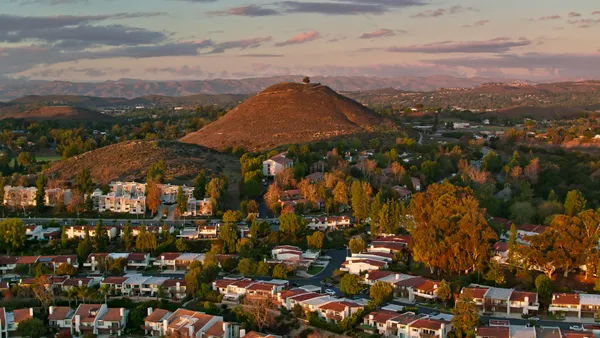Dive Brief:
- The New Orleans City Council unanimously passed last week two ordinances to overhaul the short-term rentals, such as through Airbnb or HomeAway.
- The first ordinance bans all short-term rentals in the French Quarter (except on Bourbon Street) and the Garden District. It prohibits full-house rentals unless the owner resides on the property and can provide a homestead exemption as proof, and it caps the number of rentals allowed in commercial and mixed-use buildings. The second ordinance establishes a structure for permits and fees, operating regulations and enforcement penalties.
- The new regulations, permitting structure and fees, take effect on December 1.
Dive Insight:
New Orleans has struggled to deal with short-term rentals for years, and this is just the latest iteration of the issue. "Short-term rentals are certainly nothing new as far as issues being faced by the city," Jared Munster, then-New Orleans' director of safety and permits, told Smart Cities Dive last year. But moving the practice to the internet was a game changer and made booking a stay in this manner more accessible to a wider audience.
New Orleans passed some regulations on short-term rentals in 2016. The rules required landlords to receive a license to list a short-term rental online, and the rentals were banned in the French Quarter. The city worked with Airbnb to come up with mutually agreeable rules, and Airbnb voluntarily agreed to de-list unlicensed properties that appeared on its site.
In March 2018, the New Orleans City Council asked the planning commission to conduct another home-sharing study to examine the implementation and effectiveness of the rental regulations, as well as any recommended changes. Some people criticized the council for not temporarily freezing issuing permits until new rules went into effect, as proposed last year.
The new ordinances contain some minor provisions governing short-term rentals in addition to those getting the most attention. Owners must abide by signage restrictions; rentals require a permit that must be prominently displayed on the building exterior and be visible from the street when the unit is occupied, and it must contain contact information for the owner or operator; rentals cannot be outdoors or in recreational vehicles; and occupancy limits are laid out for each unit.
Short-term rentals have proven to be a contentious issue. Residents consider them a source of income and many governments want to protect the right to conduct business. But they're also viewed as a contributor to cost of living increases and housing supply shortages because they eliminate units that could be used to house full-time residents.
Organizations such as the Travel Technology Association support short-term rentals and the competitive marketplace they provide, and Airbnb is one of its board members. Its website states that innovative technology companies have helped to create "a travel economy that is more efficient, more affordable, and more accessible for millions around the globe."
But the Center for Responsible Travel (CREST) is among the groups monitoring the short-term rental trend for its contributions to overtourism, an element the group works to end.
"[Short-term rentals] can drive up housing prices and change the characteristics of city — really, permanently alter a city," Martha Honey, CREST co-founder and director emeritus, told Smart Cities Dive. "It seems like historic inner cities are one of the real targets. Tourists want to stay there and have converged in large numbers to short-term rentals."
Honey says historic cities around the world — Amsterdam, Barcelona and Venice, to name a few — have suffered from this phenomenon. One exception is Cuba, which benefited from short-term rentals when U.S. citizens were allowed to travel to the country under the previous administration.
She notes that overtourism can create problems besides just housing crunches, and short-term rentals allow the issues to creep into neighborhoods where they otherwise would not have been present.
"What would have been quiet neighborhoods where people live for multiple generations see strangers increasing garbage, congestion, noise and pollution," Honey said. She pointed out that short-term rentals can create safety issues not just from having strangers in a neighborhood, but also if there is an emergency or natural disaster and people need to evacuate. Visitors might not know proper evacuation procedures for residential areas, and authorities wouldn't know where these visitors are to offer additional help.
Because local government clamp downs on internet-based short-term rentals is a newer solution, it's difficult to determine if it will work long term to ease housing and overtourism pressures. Still, groups like CREST believe government regulations are the best way to protect a city from the negative consequences.
"Obviously, [short-term rentals] are local businesses," Honey said. But the industry has grown substantially in a short amount of time, and "the downside is it was not recognized early enough and now city governments are trying to catch up and put in place some regulations."












